

Evolution of Private Military Security Companies in MultiDomain Operations
Volume 9, Number 3, 2024
ISSN 2957-7160 (Online)
ISSN 2957-7799 (Print)

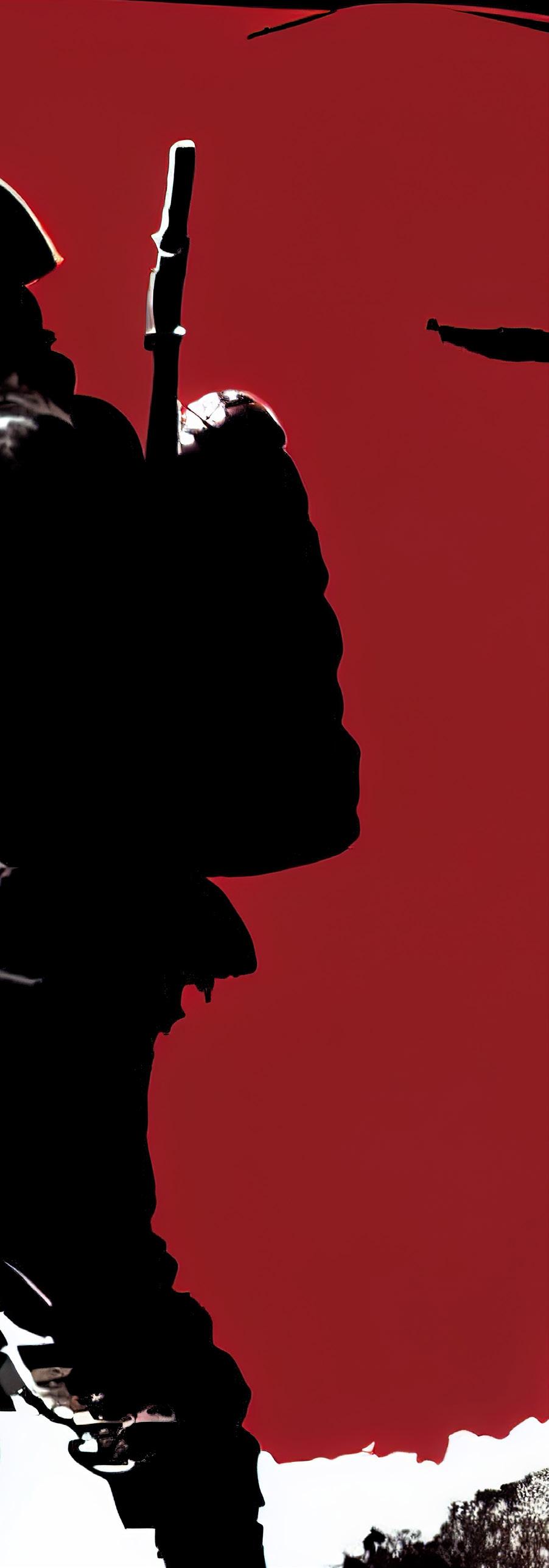

DISCLAIMER:
OPEN publications are produced by Allied Command Transformation/Strategic Plans and Policy; however OPEN publications are not formal NATO documents and do not represent the official opinions or positions of NATO or individual nations. OPEN is an information and knowledge management network, focused on improving the understanding of complex issues, facilitating information sharing and enhancing situational awareness. OPEN products are based upon and link to open-source information from a wide variety of organizations, research centers and media sources. However, OPEN does not endorse and cannot guarantee the accuracy or objectivity of these sources. The intellectual property rights reside with NATO and absent specific permission
OPEN publications cannot be sold or reproduced for commercial purposes. Neither NATO or any NATO command, organization, or agency, nor any person acting on their behalf may be held responsible for the use made of the information contained therein. The views expressed in this article are solely those of the authors and may not necessarily represent the views of NATO, Allied Command Operations, or Allied Command Transformation, or of their affiliated organizations. All rights reserved by NATO Allied Command Transformation Open Perspectives Exchange Network (OPEN). The products and articles may not be copied, reproduced, distributed, or publically displayed without reference to OPEN.
by emailing us at: editor@openpublications.org
www.openpublications.org
Evolution of Private Military Security
Multi-Domain
Let us know your thoughts on “China and the
Companies in
Operations”
CREDITS
CONTRIBUTING AUTHOR
Dr Alessandro Arduino
OPEN CAPABILITY LEADER
Col Stefan Lindelauf
OPEN MANAGING EDITOR
Dr Mehmet Kinaci
OPEN OPERATIONS MANAGER
LtC Alexios Antonopoulos
ACTION OFFICER
LtC Alexios Antonopoulos
OPEN EDITORIAL REVIEW BOARD
LtC Ferenc Pasztor
LtC Tor-Erik Hanssen
Cdr Silvio Amizic
Cdr Alban Morel
Cdr Alan Cummings
LtC Dirk Mathes
Maj Mithat Almaz
Mr Helmar Storm
Ms Klodiana Thartori
TECHNICAL EDITOR
Dr Maureen Archer
ART DESIGNER
PO1 Isabel Wences
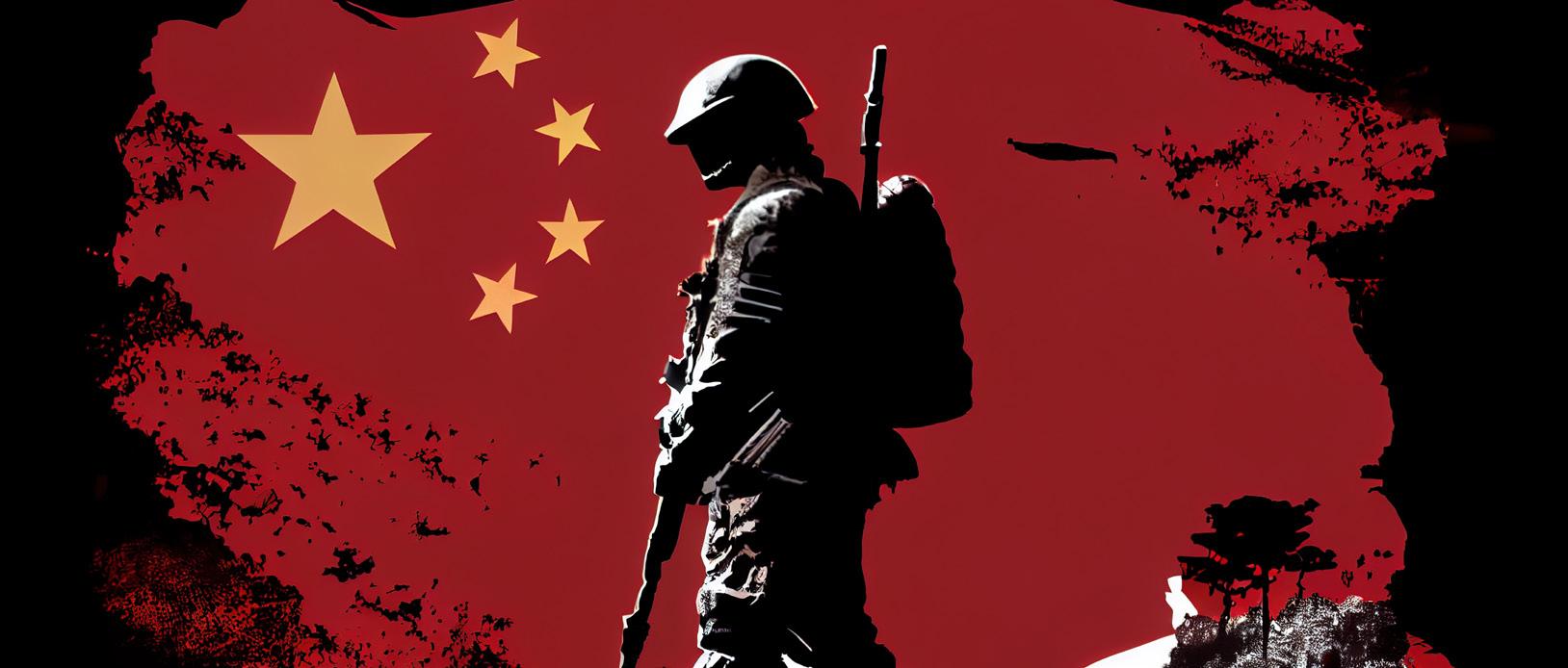
CONTENTS METHODOLOGY AND STRUCTURE 08 THE EVOLUTION OF PRIVATE MILITARY AND SECURITY COMPANIES 09 THE GLOBAL SECURITY INITIATIVE AND THE NEW SILK ROAD’S PROTECTION 12 LINEAR PROGRESSION 16 CROSSING THE RUBICON 17 LOWER COST DENIABILITY 18 PMSCS IN THE MULTI-DOMAIN ENVIRONMENT 19 RECOMMENDATIONS FOR NATO 21 CONCLUSION 22 REFERENCES 23 INTRODUCTION 06
EXECUTIVE SUMMARY
China aims to attain a “world-class” military by 2049 through the modernization of weapons, the expansion of military bases, and the development of advanced warfare capabilities. In this respect, the People’s Liberation Army (PLA) has actively embraced Multi-Domain Operations (MDO) as part of its modernization strategy, shifting the emphasis from “coordinated joint operations” to “integrated joint operations”. The emergence of Chinese private security companies (PSCs) raises compelling questions about Beijing’s use of Chinese contractors to augment logistic capabilities and intelligence gathering, even in cyberspace, with profound implications for the future of warfare. Currently, Beijing employs Chinese PSCs primarily to safeguard infrastructure and personnel along the Belt and Road Initiative
(BRI) projects. Nevertheless, the dynamic shift of the private military sector in Russia is actively influencing China’s strategic discourse for integrating its own private security sector into both military doctrine and peacekeeping operations. This evolution raises pivotal questions about the potential consequences of deploying contractors in complex environments and in support of PLA’s operations ‘’other than war’’.
Key Words: Multi-Domain Operations (MDO), private security companies (PSCs), private military and security companies (PMSCs), cyber mercenaries, outsourcing of force, global security architecture, Wagner Group, Russia, China.

Page5
INTRODUCTION
The Operation Desert Storm in Iraq marked a pivotal moment prompting China1 and Russia to reassess their military doctrines and pursue army reform. Also, while the impact of the US army’s shock and awe tactics was felt, the increasing significance of the Western private military sector as a vital component of warfare did not escape the attention of Beijing and Moscow.
Keen to understand the strategies employed by American Private Military Companies (PMCs) like Blackwater, China’s private security sector began shaping its own PSCs to operate globally, safeguarding Chinese investments and personnel. For example, Erik Prince, the founder of Blackwater, has established a presence in Hong Kong through a joint venture with the Chinese state’s financial giant China International Trust Investment Corporation (CITIC) to promote the adoption of the US contractors’ model in China. Yet, despite several Russian private military companies offering their services to protect Chinese companies abroad, the Chinese private security sector still appears to be relatively passive. Currently, it predominantly relies on unarmed security personnel overseeing local armed guards, without reaching the operational level seen in Western counterparts during conflicts in Iraq and Afghanistan. Nevertheless, President Xi Jinping’s call to modernize the People’s Liberation Army by 20352 and turn it into a “world-
class” force by 2049 calls into question how the Chinese private security sector will augment the army’s multi-domain operations.
China has established 2049 as the target for achieving a military that can potentially rival US capabilities.3 This involves a comprehensive approach, encompassing weapons modernization, expanded military bases, and advanced warfare capabilities, including a specific focus on information operations. In this respect, the PLA has actively embraced MDO as part of its modernization strategy. MDO involve the coordinated use of land, air, sea, space, and cyberspace to gain a strategic advantage. Over the past two decades, China has shifted from emphasizing “coordinated joint operations” to prioritizing “integrated joint operations”4 in its military guidelines, particularly in the 2020 revision.
Although there is no publicly available Chinese military literature explicitly indicating coordination between the PLA and PSCs, the concept of civil/ military fusion (CMF), which involves integrating civilian and military technologies and resources, does not rule out the involvement of the private security sector. In this respect, the Chinese approach to MDO stresses the utility of focusing on operations that may not necessitate the direct application of military force. These integrated
1Heginbotham, Eric, Michael Nixon, Forrest E. Morgan, Jacob L. Heim, Jeff Hagen, Sheng Li, Jeffrey Engstrom, et al. “Different Paths: Chinese and U.S. Military Development, 1996–2017.” In The U.S.-China Military Scorecard: Forces, Geography, and the Evolving Balance of Power, 1996–2017, 23–44. RAND Corporation, 2015.
2Huang Min, ‘’Questions and Answers on the Study of Xi Jinping’s Thought on Strengthening the Army’’ China Military Network - People’s Liberation Army Daily, September 13, 2022 http://www.81.cn/xx_207779/16195071.html
3Yasuyuki Sugiura “The PLA’s Pursuit of Enhanced Joint Operations Capabilities” NIDS China Security Report 2022 http://www.nids.mod. go.jp/publication/chinareport/pdf/china_report_EN_web_2022_A02.pdf
4Zhan Yu, “A Study of the Theory of Integrated Joint Operations”, China Military Science, 6-2007
joint operations often fall within the realms of civil or economic activities, employing non-military methods to achieve strategic or tactical objectives. China’s non-war military operations,5 ranging from disaster relief and humanitarian assistance to the limited use of force overseas in the context of maritime escorts and peacekeeping, will witness an increased role played by the Chinese PSCs. A case in point is the Chinese PSCs providing maritime security against piratical activities from the Somali coast to the Gulf of Guinea.
In a nutshell, MDO with Chinese characteristics are more aligned with the principles of Sun Tzu rather than Clausewitz, emphasizing a broader toolkit beyond traditional military means.6
Simultaneously, there is a growing discourse in Beijing on how to effectively integrate the expanding presence of the Chinese peacekeeping mission under the UN aegis with the Chinese PSCs operating abroad. This discussion is gaining momentum as Beijing seeks to navigate the relationship between its military and private security entities in international operations.
In a time when wars and a pandemic have been fanning the flames of competition for scarce resources, states are accelerating the privatization of the monopoly on violence. In this respect, private military and security companies (PMSCs) provide a wide range of services to governments, international organizations, and private clients. In conflict and peacetime situations, the services include armed personnel to protect people, assets, and facilities as well as intelligence analysis and cybersecurity. However, the emergence of a new breed of contractors, such as Chinese private security companies (PSCs) and Russian quasi-PMCs and mercenaries, raises compelling questions about the future of warfare and the use of contractors as a tool for state proxies. Furthermore, the evolution of mercenary-related
activities has now extended into cyberspace and the information domain, with profound implications for conventional armies’ multi-domain operations. In this respect, the deployment of PMCs and mercenaries in conflicts in Libya, Syria, Yemen and Ukraine is an indication of what is to come.
Before Russia’s unlawful annexation of Crimea, the debate on the legal implication of distinguishing between mercenaries and PMSCs seemed partially satisfied with the definition of PMCs augmenting regular armies’ capabilities via training, weapons platform maintenance, and even kinetic action, as well as PSCs’ passive stance guarding infrastructure and people against criminal or terrorist attacks. Yet, the evolution of mercenary-related activities and the emergence of quasi-PMCs such as the Wagner Group and PSCs rooted in non-market economies have complicated efforts to define laws and regulations.7
This new trend raises serious questions about the future of warfare and how states and non-state actors are deploying contractors as a plausibly deniable tool for geopolitical and financial gains. At the same time, the international legal framework on mercenary activities is struggling to keep pace with the rapidly changing global security architecture.8 While the law reflects the specific historical context in which it was developed, it fails to capture the current realities.
Today, the rise of China and Russia is reshaping the market for force away from the corporate path that the US and the West have traced over the last two decades.9 The growing presence of Chinese PSCs safeguarding the Belt and Road Initiative (BRI) against criminal and political violence, the PLA refraining from direct intervention to uphold China’s principle of non-interference, and the Wagner Group being a convenient placeholder for Russia’s geopolitical interests in Africa all mirror an ongoing trend.10
5Andrea Ghiselli, “Civil-military relations and organizational preferences regarding the use of the military in Chinese foreign policy: insights from the debate on MOOTW,” Journal of Strategic Studies 43, no. 3 (2020): 421-442
6Anthony Cordesman and Grace Hwang, “Broadening the Definition of Gray Area, Hybrid, Irregular and Multi-Domain Operations.” Chronology of Possible Russian Gray Area and Hybrid Warfare Operations. Center for Strategic and International Studies (CSIS), 2020. https://www.csis.org/analysis/chronology-possible-russian-gray-area-and-hybrid-warfare-operations
7Working Group on the use of mercenaries as a means of violating human rights and impeding the exercise of the right of peoples to self-determination. November 2, 2020 https://www.ohchr.org/en/statements/2021/02/working-group-use-mercenaries-means-violatinghuman-rights-and-impeding-exercise
8Sarah Percy, ‘’Mercenaries. The History of a Norm in International Relations.’’ Oxford University Press. 2017
9Sean McFate, ‘’The New Rules of War: Victory in the Age of Durable Disorder.’’ William Morrow, 2019.
10Alessandro Arduino, ‘’The Wagner Group in Africa Is Where the Rubber Meets the Road.’’ The National Interest. February 10, 2023 https://nationalinterest.org/feature/wagner-group-africa-where-rubber-meets-road-206202
Page7
METHODOLOGY AND STRUCTURE
This paper delves into the challenges and opportunities of PMSCs in the 21st century. The research zeros in on the historical evolution of Chinese PSCs protecting the Belt and Road Initiative (BRI),11 their efficiency, and their relationship with the Chinese government and security apparatus. The implications for the future of multi-domain operations are discussed, but forecasting future trends is not without its limitations. For example, the predicted exponential rise of Chinese PSCs guarding Chinese interests abroad did not happen, as it has been negatively impacted by two years of mobility restrictions caused by the COVID-19 pandemic and the slowdown of Chinese investments along the BRI.
While predicting changes in the historical cycles of mercenaries over long periods of time may seem feasible, the reality is that today’s fast-paced environment is mired in legal grey areas and interlinked by the rise of hybrid warfare tools such as combat drones, intelligence-for-hire, and online disinformation operations, which make the system complex and non-linear.12 Therefore, predicting future outcomes in a non-linear complex system increases the number of possible scenarios and competing outcomes, making it more sensitive to sudden exogenous changes, which can lead to unexpected divergence from a linear historical model.13 As a result, this paper suggests possible scenarios that are deliberately limited to a decade timeframe.

11Alessandro Arduino, Xue Gong, ‘’Securing the Belt and Road Initiative. Risk Assessment, Private Security and Special Insurances Along the New Wave of Chinese Outbound Investments.’’ Springer 2018 https://link.springer.com/book/10.1007/978-981-10-7116-4
12Robert Manning “Emerging Technologies: New Challenges to Global Stability.” Atlantic Council, 2020. http://www.jstor.org/stable/ resrep26000.
13Sovacool, Benjamin K, and David J Hess. “Ordering Theories: Typologies and Conceptual Frameworks for Sociotechnical Change.” Social Studies of Science 47, no. 5 (2017): 703–50.
THE EVOLUTION OF PRIVATE MILITARY AND SECURITY COMPANIES
The contemporary debate on the privatization of the state monopoly on violence involves multiple perspectives. The distinction between fighting for a corporation versus fighting for a state as a hired gun or contracted soldier has severe legal ramifications and impacts, ranging from state accountability to recruitment and deployment processes. In this respect, the International Stability Operations Association (ISOA)14 presents the issue from a US lobbyist’s viewpoint, the Montreux Document15 and the International Code of Conduct Association (ICoCA)16 promote accountable private military and security companies, and the UN points the finger at the impact of mercenaries on human rights. However, finding the proper set of laws to regulate and differentiate between mercenaries and private military contractors is increasingly difficult due to the transition towards a new security architecture.
The international legal framework on mercenary activities struggles to catch up with the rapidly changing security environment.17 Article 47 of Additional Protocol I to the Geneva Conventions of 1949 defines mercenaries as not part of a nationstate’s military, who fight for money or other forms of compensation. Subsequently, the 1989 UN International Convention against the Recruitment,
14ISOA official website https://stability-operations.org/
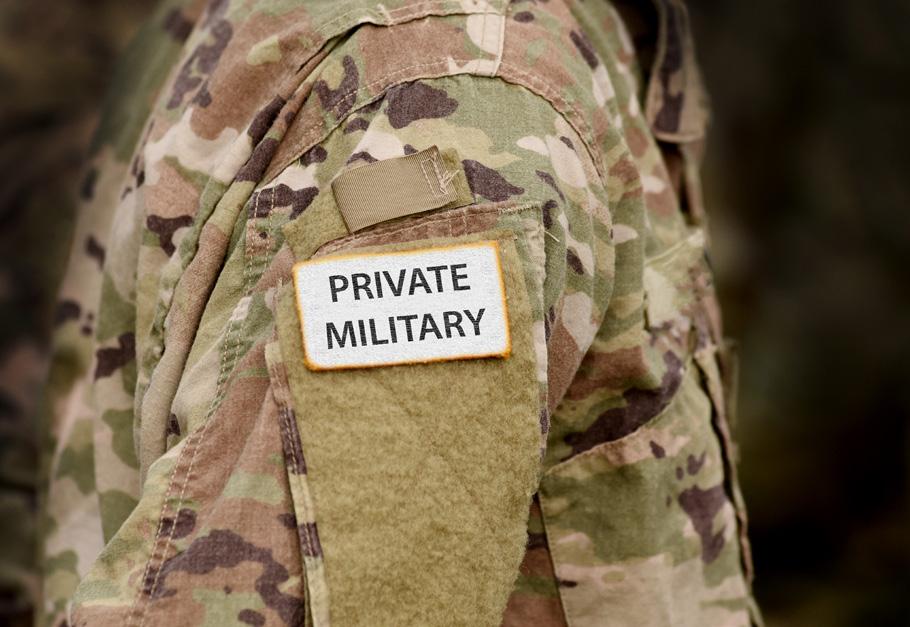
Use, Financing, and Training of Mercenaries addresses the prohibitions on mercenaries but no specific body at the international level is tasked to monitor, oversee, and guide the implementation of the Convention. More recently, the Working Group on the Use of Mercenaries as a Means of Violating Human Rights and Impeding the Exercise of the Right of People to Self-Determination defines PMSCs as corporate entities providing, on a compensatory basis, military and/or security services by physical persons and/or legal entities.18 According to Sorcha MacLeod, a member of the UN Working Group on mercenary activities,19 the UN is raising awareness of the threats posed by mercenaries, monitoring the human rights impact
15Montreux Document Forum official website https://www.montreuxdocument.org/about/montreux-document.html
16ICoCA is a multi-stakeholder initiative formed in 2013 to ensure that providers of private security services respect human rights and humanitarian law. It serves as the governance and oversight mechanism of the International Code of Conduct for Private Security Service Providers. https://icoca.ch/about/
17United Nations General Assembly, ‘’Use of mercenaries as a means of violating human rights and impeding the exercise of the right of peoples to self-determination.’’ Seventy-fifth session Item 71 of the provisional agenda Right of peoples to self-determination. July 28, 2020 https://digitallibrary.un.org/record/3883092
18Human Rights Council Fifteenth Session Agenda item .3 ‘’Promotion and protection of all human rights, civil, political, economic, social and cultural rights, including the right to development.’’ Report of the Working Group on the use of mercenaries as a means of violating human rights and impeding the exercise of the right of peoples to self-determination July 5, 2010 https://documents-dds-ny.un.org/doc/ UNDOC/GEN/G10/151/55/PDF/G1015155.pdf?OpenElement
19Working Group on the use of mercenaries as a means of violating human rights and impeding the exercise of the right of peoples to selfdetermination. November 2,2020 https://www.ohchr.org/en/statements/2021/02/working-group-use-mercenaries-means-violating-humanrights-and-impeding-exercise
Page9
of mercenaries, mercenary-related activities, and private military and security companies around the world.
In this respect, for national armies or peacekeeping forces that have to intervene in an armed conflict or in other complex environments, it is a daunting task to pinpoint where private military contractors cross the opaque and ambiguous line into mercenary activities. At the same time, quasi-PMCs are able to refute any involvement in a conflict and therefore avoid their obligations under international law. The challenges that are emerging in contemporary armed conflicts from the action of mercenary-related activities include not only the lack of transparency and accountability but also the circumstance that mercenaries thrive during conflicts and constrain any peace process. A case in point is the role of mercenaries on both sides of the ongoing Libyan conflict, in maintaining instability and hampering a diplomatic solution.20
During the last century, the private military industry was spearheaded by the United States and the United Kingdom.21 Following the privatization of military functions in Iraq, the private market for force has expanded at a staggering speed. Nevertheless, applying the same label to Russian quasi-PMCs and even Chinese PSCs is misleading. In both countries, it is a daunting task to map where the private sector starts and the state ends. While the global rush for private military companies started with the US’s outsourcing the state’s monopoly on Iraq and Afghanistan,22 now China and Russia are rewriting the rule of the game in their favour.
Since the new millennium ushered in the era of authoritarian states, the role of private military companies with an exclusive market objective has been adopted and morphed by powerful states that do not abide by democratic rules.
While in the West the rise of PMCs is synonymous with efficiency, with authoritarian states the employment of PMCs is first and foremost linked with political outcomes and secondarily linked with financial ones. In this respect, the difference between the previous Marxist-Leninist roots professed by the Soviet Union and the People’s Republic of China on security matters is that ideology has taken the back seat, in favour of realpolitik’s pragmatism.23 Russia is promoting PMCs that are closer to mercenary combat units than corporations. China is encouraging local Chinese private security firms to fill the security gap by protecting Chinese investments and personnel working abroad.
Russian mercenaries from the Wagner Group are good examples of Vladimir Putin’s application of Makarov’s hybrid warfare doctrine: Military and political objectives are achieved with impunity and nobody is held accountable.24 The 2014 unlawful annexation of Crimea and the role played by the “little green men” is a case in point.25 Moscow’s projection of power far away from its border utilizes quasi-PMCs and mercenaries as a flexible and inexpensive tool of coercion. At the same time, having ‘’private companies’’ operating abroad allows a system of patronage to funnel cash to oligarchs while avoiding international sanctions.26
In contrast, China, which is an economic juggernaut, lacks power projection capabilities. Despite the fact that the PLA has undergone significant reforms after President Xi strengthened his grip on power in 2013,27 China still lacks battle-tested soldiers, so the Chinese PSCs are a convenient security gap-filler. Moscow’s quasiPMCs are the tip of the spear of state-sponsored undercover military actions from the Middle East to Africa and a parallel army detached by the Russian army’s chain of command in the Ukrainian war. Compared to Russia, Beijing’s PSCs operate
20UK Foreign Affairs Committee, ‘’Written Submission on Wagner’s Activities in Libya (WGN0014).’’ May 2022 https://committees. parliament.uk/writtenevidence/108429/pdf/
21Singer, P.W. ‘’Corporate Warriors: The Rise of the Private Military Industry.’’ Ithaca: Cornell University press. 2003. 22Sean McFate, ‘’The Modern Mercenary: Private Armies and What They Mean for World Order.’’ Oxford: Oxford University Press. 2014 23Sergey Sukhankin, ‘’ War by other means’’ series 2019-2020 Jamestown Foundation https://jamestown.org/programs/russ-pmc/ 24Christoph Bilbana and Hanna Grininger, ‘’Labelling Hybrid Warfare: The “Gerasimov Doctrine”. in Think Tank Discourse. November 2, 2020https://www.academia.edu/44424163/Labelling_Hybrid_Warfare_The_Gerasimov_Doctrine_in_Think_Tank_Discourse
25Candace Rondeaux, ‘’Decoding the Wagner Group: Analyzing the Role of Private Military Security Contractors in Russian Proxy Warfare’’ November 7, 2019 https://www.newamerica.org/international-security/reports/decoding-wagner-group-analyzing-role-private-militarysecurity-contractors-russian-proxy-warfare/
26Åse Gilje Østensen & Tor Bukkvoll, ‘’Private military companies – Russian great power politics on the cheap?’’, Small Wars & Insurgencies, 2021DOI:10.1080/09592318.2021.1984709
27Richard A. Bitzinger, and James Char, ‘’Reshaping the Chinese Military: The PLA’s Roles and Missions in the Xi Jinping Era.’’ Routledge, 2019.

on the opposite end of the privatization of force, addressing China’s BRI security requirements. Therefore, the protection and security in the BRI are entrusted to less than 20 leading Chinese
private security firms, among the 10,000 that populate the Chinese internal security market, which has more than 3 million operators.28
28Alessandro Arduino, ‘’The Footprint of Chinese Private Security Companies in Africa. ‘’ Working Paper No. 2020/35. China Africa Research Initiative, School of Advanced International Studies, Johns Hopkins University, Washington, DC. Retrieved from http://www. sais-cari.org/publications
Page11
THE GLOBAL SECURITY INITIATIVE AND THE NEW SILK ROAD’S PROTECTION
Since its inception in 2013, President Xi’s foreign policy flagship initiative, the BRI, has led to a surge in demand for Chinese PSCs to protect Chinese personnel and infrastructure while operating abroad. However, China’s security requirements have been challenging to balance with the principle of non-interference,29 leading to a need for professionalization of the local PSCs.
Today, Beijing is improving laws and regulations related to the expansion of its own PSCs overseas and how the Chinese private security sector will fit into the Global Security Initiative (GSI). During the Boao Forum in April 2022, Xi launched the GSI, a road map for an international system as an alternative to the US-led security architecture.30 The initiative outlines China’s security strategy for the coming years: “A global security order that is common, comprehensive, cooperative, sustainable, and separate from the US’s security umbrella.”
In this respect, Chinese PSCs operating abroad are already upgrading standard operating procedures in communicating with the Chinese consular offices and the Chinese “blue helmets”. However, the increasing professionalization and closer relations with the Chinese government are raising concerns that Chinese PSCs may have a hidden agenda, particularly in intelligence gathering, raising questions about Beijing’s definition of
“private” with regard to Chinese PSCs and their role in the CMF. Despite the fact that CMF focuses on a strategy to develop and acquire advanced dual-use technology for military purposes and deepens reform of the national defence science and technology industries, its broader purpose is to strengthen all of China’s instruments of national power by “fusing” aspects of its economic, military, and social governance.31 According to Richard Bitzinger and James Char, the PLA enhancements in operational capabilities, both in terms of its hardware as well as its “heartware” - the human elements of its development such as operational culture and doctrine - have been triggered by the profound realization of its previous limitations visa-vis the US advanced military operations of the previous century. Similarly, the Chinese private security sector has been conscious of its own limitations compared to its Western and Russian counterparts, but legal and financial constraints are still hampering the sector’s much-needed reforms.
Although the private security industry in China has been around since 1993, most PSCs are still founded and directed by former security officers, with personnel recruited from the PLA, People’s Armed Police, and the police force. In 2019 the law was amended to surpass the earlier limitations tracing the lines for the protection of Chinese personnel and infrastructures overseas.32
29Zheng Chen, ‘’China Debates the Non-Interference Principle.’’ The Chinese Journal of International Politics ISSN: 1750-8916 September 1, 2016 Volume: 9 Issue: 3 Page: 349 DOI: 10.1093/cjip/pow010
30GSI, Chinese President Xi Jinping’s keynote speech at the opening ceremony of BFA annual conference 2022. BaoAo Forum April 23, 2022 https://english.boaoforum.org/newsDetial.html?navId=3&itemId=0&permissionId=114&detialId=16834
31Cordesman, Anthony H., and Grace Hwang. “China’s View of Military-Civil Fusion (MCF).” Chinese Military Dynamics and Evolving Strategy: Graphic Net Assessment. Center for Strategic and International Studies (CSIS), 2021.
32“Guidelines for Safety Training of Overseas Enterprises Expatriate Personnel (2019 Edition)” ( 2019). Ministry of Public Security, Ministry of Foreign Affairs, Ministry of Commerce, State-owned Assets Supervision and Administration Commission, All-China Federation of Industry and Commerce
Nevertheless, today’s Chinese PSCs evolutionary trends are still following the path set in the 90s, and the current lack of clear rules and regulations for PSCs operating overseas is leaving the industry vulnerable to competition from the socalled DIY Chinese PSCs, companies with limited capabilities that set up shop abroad without the proper licencing at home. In this respect, the race to the bottom trend with small and medium Chinese PSCs providing substandard services for a fraction of the price is still affecting the industry’s overseas services.
While Chinese companies increasingly operate in politically volatile regions, compared to Russian and Western counterparts, Chinese PSCs are tasked with a passive role, mainly focused on asset protection. Nevertheless, the COVID-19 pandemic has accelerated the trend towards consolidation in the Chinese security sector, reducing avenues for profit for small and mid-sized PSCs and leaving the industry open to top-tier providers.
Since the fall of Kabul to the Taliban and the Russian invasion of Ukraine, the global security landscape where Chinese companies operate has changed abruptly with an increase of attacks on Chinese nationals. According to Raffaello Pantucci, a counter-terrorism expert, international terrorist organizations no longer considered Beijing a secondary target. The unprecedented killing of nine Chinese miners in the Central African Republic (CAR) and the attack on the Chinesemanaged hotel in Kabul by the Islamic State in Khorasan (ISK) are cases in point.
Beijing is at a crossroads. The increase of violence against Chinese abroad is calling for the private security sector professionalization, for an expansion of the PLA presence overseas, or both.
In terms of command structure, the Chinese PSCs are legally incorporated entities in China whose founder and usually managing director is a former high-ranking official from the PLA or the police. From an efficiency point of view, except for the top leading Chinese companies, most PSCs are still latecomers to the international security sector and struggle to find competent Chinese contractors, frequently opting for local fixers. One speedbump in the evolution of the Chinese PSCs is training personnel with the necessary local knowledge
and security skills. Again, except for the top-tier Chinese security companies, the lack of lucrative contracts limits the quality of the security output. Only a few Chinese PSCs provide their staff members with internationally accredited external training certifications.
Also, the definition of “private” itself in China requires taking into account the pervasive role of the Chinese Communist Party (CCP) presence in any private company, the dealings with Chinese State-Owned Enterprises (SOEs) as the primary client, and the overall Chinese government bureaucracy shaping the private sector. The Chinese domestic laws regulating the private sector are based on the socialist market economic structure. Therefore, from a Western perspective, it can sometimes be difficult to distinguish where the state-owned ends and the private begins.
However, it remains to be seen how successful China will be in securing the BRI and how the Chinese PSCs will evolve. In this context, a proficient Chinese PSC operating abroad, with seamless communication channels established with both the Chinese military and local security forces, could wield profound strategic and security implications. This synergy has the potential to enhance the PLA capabilities in MDO within regions where Chinese PSCs are deployed. This includes:
• Safeguarding logistical facilities;
• Guarding natural resource extraction operations;
• Countering piracy;
• Supporting counterterrorism operations;
• Supporting humanitarian assistance and disaster relief;
• Providing boots on the ground in NonCombatant Evacuation Operations (NEOs);
• Conducting local data-gathering; and
• Bolstering capabilities in anti-drone and cybersecurity operations.
Page13
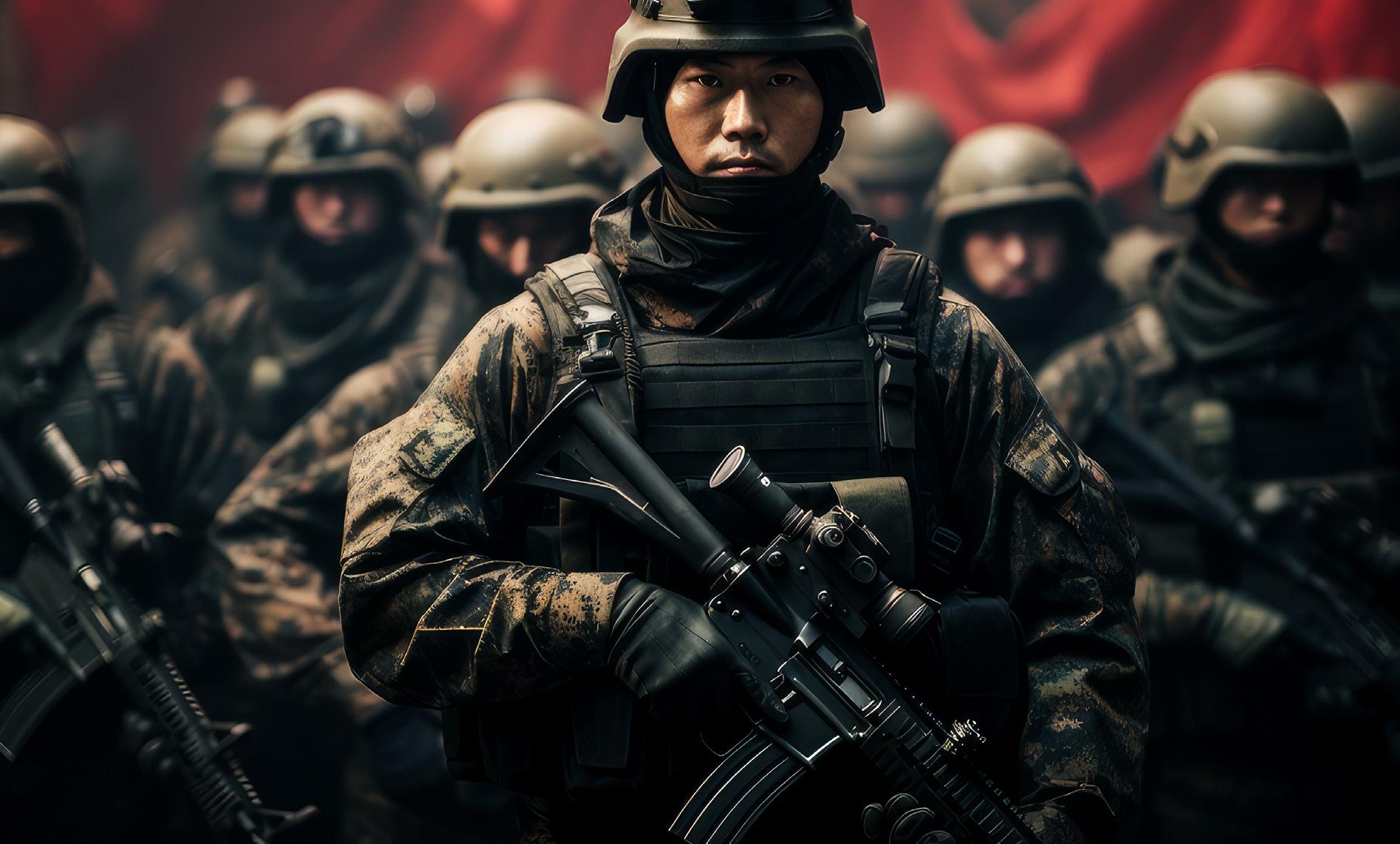
Therefore, the PLA’s strategy is witnessing a notable convergence with the functions provided by China’s private security sector, spanning all MDO domains.
The acquisition of overseas logistical infrastructures exemplifies this fusion, with Chinese PSCs offering security services safeguarding commercial ports against theft, while also being primed to assist during possible People’s Liberation Army Navy (PLAN) port calls. Transitioning from land to sea, in the last decade Chinese PSCs have been escorting Chinese commercial vessels, countering pirates from Somali coastlines to the Gulf of Guinea. Following the Houthi militant attacks on commercial vessels along the Bab al-Mandab chokepoint, Chinese PSCs are stepping up,33 offering anti-drone capabilities on Chinese commercial vessels along the Red Sea, ranging from signal jammers disrupting armed UAV connections to kinetic measures thwarting kamikaze drone attacks. This underscores their readiness to address security vacuums when PLA Navy deployment is constrained by geopolitical factors.
Furthermore, the potential integration of Chinese PSCs to bolster China’s military prowess across diverse scenarios, spanning peacetime to wartime, is manifesting. Notably, amidst rising militant violence against Chinese workers in Pakistan, Chinese PSCs collaborate with local counterparts, particularly in the turbulent province of Balochistan, serving as an early warning system and providing actionable intelligence for PLA and the People’s Armed Police (PAP) counter-terrorism operations.
Even within cyberspace, recent data leaks from a Chinese private cybersecurity entity34 unveiled hacking exploits outsourced to the private sector with state support, blurring the line between security and military functions. In this respect, Beijing’s nuanced employment of Chinese cybersecurity contractors across the competition continuum underscores the maturation of this MDO domain.
At the same time, Mr Prigozhin, the ex-leader of the Wagner Group, through his June 2023 armed mutiny and march on Moscow, exemplifies the
33Alessandro Arduino, ‘’ China’s response to mounting maritime perils: private security firms, high-seas arms caches’’ SCMP, December 28, 2023. https://www.scmp.com/week-asia/opinion/article/3246468/chinas-response-mounting-maritime-perils-private-security-firmshigh-seas-arms-caches
34Edward Moreno, ‘’ China’s Hacker Network: What to Know’’, The New York Times, February 22, 2024. https://www.nytimes. com/2024/02/22/business/china-hack-leak-isoon.html
potential fear that Beijing might harbour regarding the professionalization of Chinese PSCs toward a Russian model.35 Unaccountable and highly skilled Chinese PSCs operating overseas, which could have a different agenda than the CCP, could spell trouble when returning home. Despite being seen as a monolithic structure, the CCP comprises distinct power groups that might view certain PSCs as a more suitable tool for domestic purposes rather than safeguarding the BRI.
Regulating the rise of Chinese PSCs with a detailed normative diminishes the chances of
negative spillovers abroad and enhances the potential benefits, especially where China cannot be seen to diverge from its declared “principle of peaceful rise”. In this respect, the scenarios mapping the evolution of the Chinese PSCs protecting Chinese interests and personnel abroad could be summarized in three possible outcomes: acceleration of the current trend (linear progression), evolution from PSCs to PMCs (crossing the Rubicon36), and following the Russian playbook (lower cost deniability).
35Anatoly Kurmanaev , ‘’Russia’s Top Paramilitary Chief Accuses Army Command of Treason.’’ The New York Times, February 21, 2023 https://www.nytimes.com/2023/02/21/world/europe/wagner-russia-military-prigozhin.html
36‘’Crossing the Rubicon’’ idiom signifies reaching a point of no return. Its origin dates back to 49 BC with Julius Caesar’s legions crossing the Rubicon River. This act was seen as treacherous because it violated the law prohibiting the entrance of armies into Italy, with the Rubicon marking its northern boundary. Caesar’s decision to cross the river marked a path with irreversible consequences.
Page15
LINEAR PROGRESSION
The frequency of attacks on Chinese infrastructure and personnel is on the rise, driven by a multitude of factors rather than a coordinated global strategy to attack the BRI. One contributing factor is the surge in Chinese workers abroad, as BRI projects resume following the COVID-19 pandemic. Another factor is the disappointment felt by local communities, which expected Chinese investments to bring positive change but instead experienced negative environmental and social effects, further exacerbated by the pandemic’s economic impact.
In this respect, Beijing is already learning from the previous mistakes and is adapting BRI’s crisis management strategy. In Central Asia, where President Xi’s flagship foreign policy project was launched in 2013, the footprint of Chinese investments is far from the spotlight. Chinese workers are secluded in gated compounds with minimal interaction with the locals. Even in the extractive sector from Kazakhstan to Tajikistan, the Chinese profile is kept at a minimum. Also, the data available on the projects are kept on a tight leash, especially if it is related to gold mines and rare earth minerals. However, having Chinese security experts in regions near hotspots like Afghanistan offers a valuable source of information. This information covers a wide range of topics, from local power struggles to border security issues, which could be operationalized in the PLA’s MDOs.
On the contrary, in Africa, the situation is not evolving toward better threat assessment and risk mitigation. The problem from the Cape to Cairo is complicated as the expansion of Chinese investments is not only driven by SOEs and Beijing’s top-down approach but also by Chinese private companies that range from small mining operations to even DIY private security companies. The lack of coordination with Beijing and almost no crisis management and risk assessment capability – due to the small size and budget – is a recipe for disaster.37
To mitigate these risks, Beijing is expected to increase regulation and scrutiny of Chinese private security companies, promote the rise of professional Chinese PSCs, and establish operational procedures to interact with Chinese consular services and a growing number of PLA foreign bases. In terms of size, the number of Chinese nationals working for Chinese PSCs overseas will still be limited to security managers acting as a conduit between the Chinese workers and the locally hired security. The primary impact on MDOs will be closely tied to safeguarding logistical facilities, preventing the necessity for a PLA presence abroad, and gathering data to bolster the PLA’s quest for information dominance.
37Alessandro Arduino, ‘’Chinese private security firms are growing their presence in Africa: why it matters’’ The Conversation, August 8, 2022 https://theconversation.com/chinese-private-security-firms-are-growing-their-presence-in-africa-why-it-matters-187309
CROSSING THE RUBICON
Following the March 2023 shocking attack on a Chinese gold mine in the CAR that witnessed the killing of nine Chinese nationals, President Xi personally instructed that the perpetrators must be brought to justice and the CAR government should ensure the safety of Chinese nationals.38 The attack happened a few days after the kidnapping of three Chinese workers near the CAR’s border with Cameroon. However, an increase in violence towards Chinese nationals could lead to criticism at home of the government’s ability to protect its citizens. Even over the tightly controlled Chinese social media, high-profile incidents could cast further doubts on the viability of the BRI.
In this respect, to ensure the security of the BRI, which is enshrined in the CCP’s constitution, Beijing may lift certain normative security controls on the evolution of the Chinese PSC towards a private military model. This could include granting legal permission for Chinese PMCs to carry weapons abroad and forging closer partnerships with the Chinese Military Industry Complex for training and operational support of foreign governments that receive Beijing’s security materiel. While
cooperation with Western PMCs will be severely limited as the Sino-American geopolitical competition intensifies, cooperation with foreign PMCs to augment the Chinese private security sector should not be excluded a priori. It is not by chance that for several years a small number of Chinese PSC operating managers have asked Beijing to follow the Blackwater model, albeit with “Chinese characteristics”.39
These new companies would likely be limited to small groups of professional contractors operating abroad and with experience matured in the Chinese Special Forces, during UN peacekeeping missions or during potential “non-war military operations” based on Xi’s orders for the PLA from 2022.
This scenario will increase the role of the Chinese private security sector in supporting the PLA’s MDO with a focus on much-needed capabilities from anti-UAV to cybersecurity, as well as supporting China’s military operations abroad in the “soft use” of “hard power”40
38Foreign Ministry Spokesperson’s Remarks on the Attack on a Chinese Private Company in the Central African Republic March 20, 2023 https://www.fmprc.gov.cn/mfa_eng/xwfw_665399/s2510_665401/2535_665405/202303/t20230320_11044562.html
39Alessandro Arduino, ‘’China’s Private Army. Protecting the New Silk Road’’ Palgrave 2018 https://link.springer.com/book/10.1007/978981-10-7215-4
40James Siebens and Ryan Lucas, ‘’Military Operations Other Than War in China’s Foreign Policy.’’ Stimson. October 3, 2022 https://www. stimson.org/2022/military-operations-other-than-war-and-chinas-foreign-policy/
Page17
LOWER COST DENIABILITY
Among these three scenarios, ‘’lower cost deniability’’ is the least likely option for Beijing to increase its security presence abroad while adhering to the principle of non-interference and avoiding direct PLA involvement. The betrayal of Vladimir Putin by Yevgeny Prigozhin serves as a vivid cautionary tale for Beijing, urging attention to adopting strategies akin to the Russian playbook.
This approach involves setting up shell companies to fund and equip paramilitary groups that can carry out Beijing’s bidding without a direct link to China. However, with the tension between the US and China reaching its zenith, cooperation with Western PMCs will be unlikely, leaving the only option to work with local militias and armed groups for specific tasks, including the Wagner Group under new management. The scenario also includes the use of cyber mercenaries, unmanned combat aerial vehicles (UCAVs) for hire, and disinformation groups that can augment specific
MDOs’ capabilities as needed, and on a pay-peruse basis.
Also, in the event of a conflict, the paramilitary organization’s role would provide an excuse to hide the loss of life, which is a concern in a country with ageing citizens and adverse to casualties among the “single-child” population. These groups could be larger than in the previous two scenarios, which could present difficulties in screening proper operators and filling ranks during conflicts, increasing risks associated with this approach.
While “linear progression” seems the most probable outcome, sudden spikes in violence against Chinese working abroad could force Beijing’s hand into “crossing the Rubicon.” In light of China’s BRI development/security nexus and PLA modernization requirements under MDO, it is highly unlikely for Beijing to choose “lower cost deniability.”
PMSCS IN THE MULTI-DOMAIN ENVIRONMENT
Today, the historical cycle of warfare is back to professional soldiers being in the public eye. While the use of soldiers of fortune may have seemed to disappear in the past, it merely retreated into the shadows, where dying for a flag became more honourable than dying for the coin. However, even in today’s modern warfare settings, characterized by UCAVs and cyber warfare, there is a role for mercenaries and private security contractors, which is rising.41
While the traditional definition of multi-domain operations includes the “synchronization and integration of military activities across multiple domains, including land, air, sea, space, and cyberspace, in pursuit of common objectives”,42 a broader approach is needed to encompass views in non-traditional areas that include civil, economic, and non-combat operations. A case in point is plausibly deniable operators’ capabilities, from disinformation to kinetic operations, to gain a decisive advantage over potential adversaries.
While the study on civil-military relations is welldeveloped, the analysis of military-PMSCs relations and its role in supporting MDO and delivering multi-domain effects is still in its infancy. PMSC’s capabilities in supporting MDO connectivity, integration and interoperability across
all domains are already here.43 The challenge is related to synchronizing efforts between the military and the private sector. According to Allied Command Transformation: ‘’given the speed of information, data flows and adversarial capabilities, the necessity of orchestrating military activities across all domains as a single force is crucial for long-term defence and deterrence initiatives within NATO.’’44 In this respect, the private military and security sector, though not part of the direct military command structures, wields substantial influence in technological innovation and augmenting of military capabilities. Within the framework of MDO, the challenge is to evolve the client-customer relationship between the private and public sectors towards a comprehensive integration across domains and capabilities. An illustrative example lies in PMSCs that provide advanced cybersecurity services during wartime to safeguard critical infrastructure.
Also, being able to anticipate, assess, and mitigate the action of unaccountable mercenaries and PMSCs that operate as a state proxy will enable the Alliance and member countries to fight under conditions of disruptive change. A case in point is the use of ‘’commercial sensing’’ when the Wagner Group acquired Chinese synthetic aperture radar imagery of locations in Ukraine45 to support its combat operations.
41Alessandro Arduino ‘’Money for Mayhem: Mercenaries, Private Military Companies, Drones, and the Future of War’’ Rowman & Littlefield, October 2023 https://rowman.com/ISBN/9781538170311/Money-for-Mayhem-Mercenaries-Private-Military-Companies-Drones-and-theFuture-of-War
42Multi-Domains Operations Conference – What We Are Learning. NATO’s Act April 2022, https://www.act.nato.int/articles/multi-domainsoperations-lessons-learned
43Franklin D.Kramer ‘’The sixth domain: The role of the private sector in warfare’’ The Atlantic Council October 4, 2023 https://www. atlanticcouncil.org/in-depth-research-reports/report/the-sixth-domain-the-role-of-the-private-sector-in-warfare/ 44NATO Allied Command Transformation ‘’Multi-Domain Operations in NATO – Explained’’ October 5, 2023 https://www.act.nato.int/article/mdo-in-nato-explained/
45Andrew Jones, ‘’ U.S. sanctions Chinese satellite firm for allegedly supplying SAR imagery to Russia’s Wagner Group’’ Space News, January 27, 2023 https://spacenews.com/u-s-sanctions-chinese-satellite-firm-for-allegedly-supplying-sar-imagery-to-russias-wagnergroup/
Page19
While the stance of the Chinese PSCs is passive and with a footprint related to the economic and trade expansion of Chinese SOEs and companies overseas, monitoring and regulating the sector is fundamental. At the international level, it is still possible to involve the Chinese Private Security Association and the Chinese PSCs willing to adhere to and be certified according to international norms, promoting transparency and accountability within the industry. With security companies adventuring in the cyber defence realm as well as in the use of UAVs, if only for scouting purposes, the discussion about monitoring and regulating is even more compelling and urgent. The example of security companies providing military-grade spyware and pretending to be an IT outlet is a case in point. Also, the Wagner Group showcased how the integration of boots-on-the-ground operations in Africa with disinformation campaigns tailored to promote Russia as a reliable partner and an alternative to the West, encouraged the postponement of democratic elections.46
In this respect, the use of mercenaries in warfare
has long been a contentious issue, with one of the most common accusations against them being that they perpetuate a continuous state of insecurity, compromise a state’s ability to retain a monopoly on the use of force, and prioritize profit over stability. While Russia continues to double down on utilizing private armies in both conventional and covert operations, China has adopted a more cautious approach, seeking to protect its interests abroad while avoiding breaching the decades-old principle of non-interference. On the one hand, the rising violence against Chinese workers has pushed Beijing to increase the number and professionalization of Chinese private security contractors overseas. But, on the other hand, the Wagner Group armed mutiny is a stern reminder to Beijing that mercenaries are a double-edged sword. Therefore, China must tread carefully, recognizing that while private security companies may offer a means of protecting its interests abroad and even augment PLA’s MDO, the evolution towards PMCs could pose a significant risk to stability and security at home if not carefully managed.
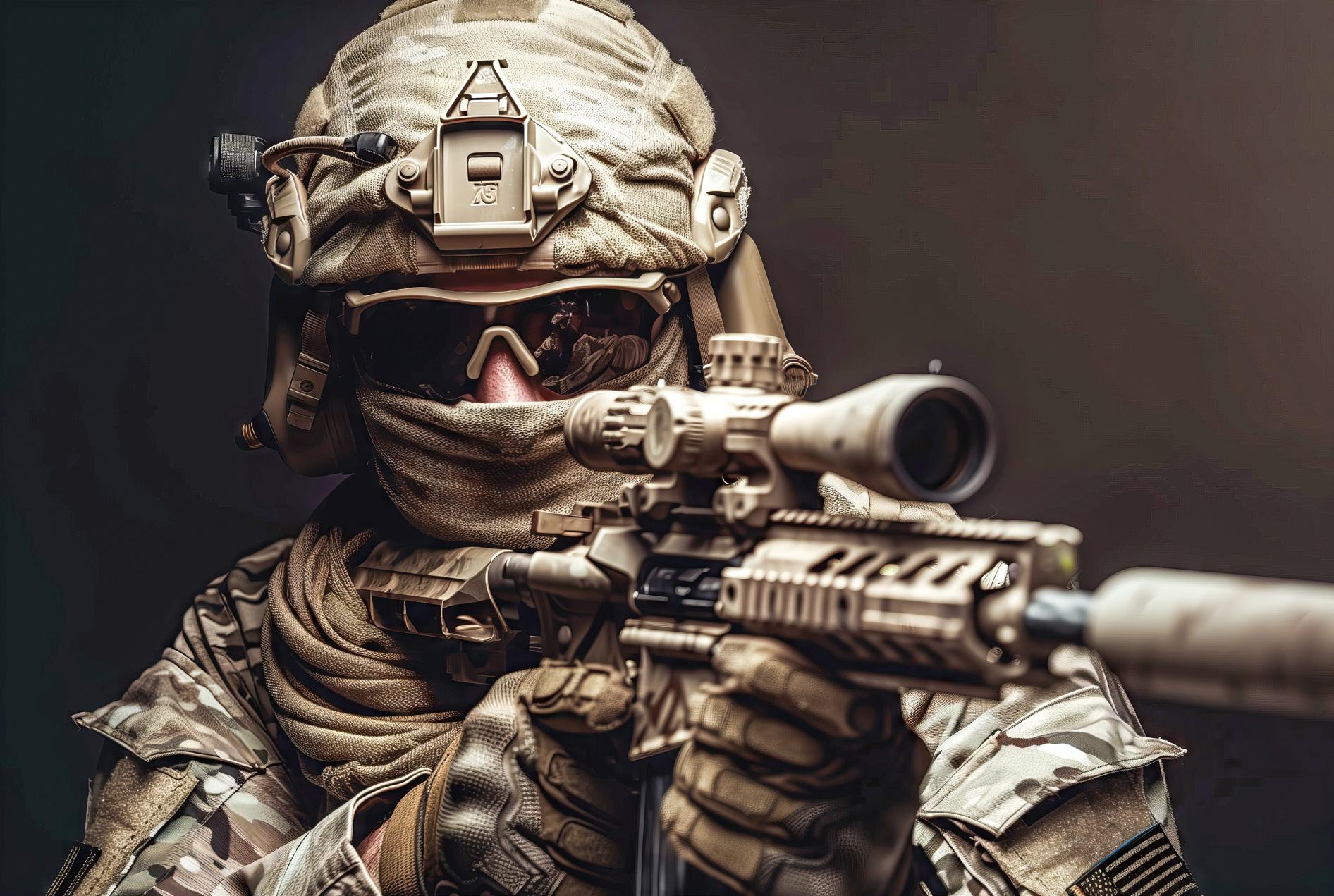
46‘’Wagner Group, Yevgeniy Prigozhin, and Russia’s Disinformation in Africa.’’ US Department of State. May 24, 2022 https://www.state. gov/disarming-disinformation/wagner-group-yevgeniy-prigozhin-and-russias-disinformation-in-africa/
RECOMMENDATIONS FOR NATO
The ascent of Chinese PSCs as guardians of the BRI might not directly challenge NATO’s multidomain operations strategies. However, the integration of these entities with Beijing’s Global Development Initiative (GDI) and their escalating professionalism present a challenge. While Chinese PSCs may not emulate their Russian counterparts, the Wagner Group’s manoeuvres in Africa highlight the region’s vulnerability and the potential disruption of NATO Allies’ operations, as seen in Mali, where they supplanted the Frenchled Barkhane counter-terrorism campaign.47
Thus, the Alliance must remain vigilant; monitoring China’s utilization of its private security apparatus in MDO is essential. This entails scrutinizing the expanding overseas footprint of Chinese PSCs, their growing cyber capabilities, and their integration with the civil-military sector. The commercial integration of private security services and closed-circuit television (CCTV)
facial recognition monitoring with AI’s integrated capabilities is a case in point. In this respect, the transition from civilian security use to bolstering AI-driven military endeavours is a swift and consequential leap.
Simultaneously, the professionalization of the Chinese sector abroad often intertwines with the engagement of international contractors and the enlistment of local military and police resources, many of whom have undergone training through Western-led military aid initiatives, particularly evident in various African contexts. Therefore, advocating for transparency and accountability across the sector in accordance with international standards, from the Montreux Document to the International Code of Conduct, serves to mitigate the likelihood of unforeseen adverse developments.
47Catrina Doxee et all, ‘’The End of Operation Barkhane and the Future of Counterterrorism in Mali.’’ CSIS March 2, 2022 https://www.csis. org/analysis/end-operation-barkhane-and-future-counterterrorism-mali
Page21
CONCLUSION
As the need for security increases, the line between private security and private military services or even mercenaries becomes less clear. Hiring efficient private security providers can benefit multinational companies operating in high-risk environments and positively impact local stakeholders. However, rogue PMSCs and mercenary organizations threaten peace processes, ignite conflicts, and undermine national sovereignty.
The competition for the state’s monopoly on violence is growing, and outsourcing the use of force is becoming common. PMSCs offering kinetic services, military platform maintenance, UCAVs, and cyber offensive services integrated into multi-domain operations are already a reality. Nevertheless, history has shown that buying a force for hire does not always guarantee victory. From an MDO standpoint, using private military forces alongside allied military forces raises command and control issues, communication problems, and discrepancies in strategic and tactical goals.
Also, the evolution of PMSCs outside internationally agreed norms and regulations presents challenges across military domains, especially disinformation and cyber capabilities to exploit vulnerabilities and disorientate, which are growing trends. An improved understanding of the interlinkages between contractors and the states that utilize their services is essential in achieving the transformation required for the Alliance to improve its strategic resilience and ensure its ability to coordinate across all domains.
The rise of Chinese PSCs as protectors of the BRI may not clash with NATO Allies’ multi-domain operations concepts, but integration with Beijing’s GDI and their increasing professionalism pose a challenge. Therefore, properly regulating the privatization of the state monopoly on violence is crucial, given the potential consequences for accountability, recruitment, deployment, and effectiveness. The failure to take effective action regarding mercenaries and unaccountable PMSCs merely pushes the problem into the future.
REFERENCES
Arduino Alessandro, ‘’China’s Private Army. Protecting the New Silk Road’’ Palgrave 2018 https://link. springer.com/book/10.1007/978-981-10-7215-4
Arduino Alessandro, ‘’Money for Mayhem: Mercenaries, Private Military Companies, Drones, and the Future of War’’ Rowman & Littlefield, October 2023 https://rowman.com/ISBN/9781538170311/Moneyfor-Mayhem-Mercenaries-Private-Military-Companies-Drones-and-the-Future-of-War
Bilbana Christoph and Hanna Grininger, ‘’Labelling Hybrid Warfare: The “Gerasimov Doctrine”. in Think Tank Discourse. November 2, 2020https://www.academia.edu/44424163/Labelling_Hybrid_Warfare_ The_Gerasimov_Doctrine_in_Think_Tank_Discourse
Bitzinger Richard A., and James Char, ‘’Reshaping the Chinese Military: The PLA’s Roles and Missions in the Xi Jinping Era.’’ Routledge, 2019.
Cordesman Anthony and Grace Hwang, “Broadening the Definition of Gray Area, Hybrid, Irregular and Multi-Domain Operations.” Chronology of Possible Russian Gray Area and Hybrid Warfare Operations. Center for Strategic and International Studies (CSIS), 2020. https://www.csis.org/analysis/chronologypossible-russian-gray-area-and-hybrid-warfare-operations
Cordesman, Anthony H., and Grace Hwang. “China’s View of Military-Civil Fusion (MCF).” Chinese Military Dynamics and Evolving Strategy: Graphic Net Assessment. Center for Strategic and International Studies (CSIS), 2021.
Doxee Catrina et all, ‘’The End of Operation Barkhane and the Future of Counterterrorism in Mali.’’ CSIS March 2, 2022 https://www.csis.org/analysis/end-operation-barkhane-and-future-counterterrorism-mali
Foreign Ministry Spokesperson’s Remarks on the Attack on a Chinese Private Company in the Central African Republic March 20, 2023 https://www.fmprc.gov.cn/mfa_eng/xwfw_665399/ s2510_665401/2535_665405/202303/t20230320_11044562.html
Ghiselli Andrea, “Civil-military relations and organizational preferences regarding the use of the military in Chinese foreign policy: insights from the debate on MOOTW,” Journal of Strategic Studies 43, no. 3 (2020): 421-442
Page23
GSI, Chinese President Xi Jinping’s keynote speech at the opening ceremony of BFA annual conference 2022. BaoAo Forum April 23, 2022 https://english.boaoforum.org/newsDetial. html?navId=3&itemId=0&permissionId=114&detialId=16834
“Guidelines for Safety Training of Overseas Enterprises Expatriate Personnel (2019 Edition)” ( 2019). Ministry of Public Security, Ministry of Foreign Affairs, Ministry of Commerce, State-owned Assets Supervision and Administration Commission, All-China Federation of Industry and Commerce
Heginbotham, Eric, Michael Nixon, Forrest E. Morgan, Jacob L. Heim, Jeff Hagen, Sheng Li, Jeffrey Engstrom, et al. “Different Paths: Chinese and U.S. Military Development, 1996–2017.” In The U.S.China Military Scorecard: Forces, Geography, and the Evolving Balance of Power, 1996–2017, 23–44. RAND Corporation, 2015.
Huang Min, ‘’Questions and Answers on the Study of Xi Jinping’s Thought on Strengthening the Army’’China Military Network - People’s Liberation Army Daily, September 13, 2022 http://www.81.cn/ xx_207779/16195071.html
Human Rights Council Fifteenth Session Agenda item .3 ‘’Promotion and protection of all human rights, civil, political, economic, social and cultural rights, including the right to development.’’ Report of the Working Group on the use of mercenaries as a means of violating human rights and impeding the exercise of the right of peoples to self-determination July 5, 2010 https://documents-dds-ny.un.org/doc/ UNDOC/GEN/G10/151/55/PDF/G1015155.pdf?OpenElement
Kramer D. Franklin ‘’The sixth domain: The role of the private sector in warfare’’ The Atlantic Council October 4, 2023 https://www.atlanticcouncil.org/in-depth-research-reports/report/the-sixth-domain-therole-of-the-private-sector-in-warfare/
Kurmanaev Anatoly, ‘’Russia’s Top Paramilitary Chief Accuses Army Command of Treason.’’ The New York Times, February 21, 2023 https://www.nytimes.com/2023/02/21/world/europe/wagner-russiamilitary-prigozhin.html
Manning Robert, “Emerging Technologies: New Challenges to Global Stability.” Atlantic Council, 2020. http://www.jstor.org/stable/resrep26000.
McFate Sean, ‘’The Modern Mercenary: Private Armies and What They Mean for World Order.’’ Oxford: Oxford University Press. 2014
McFate Sean, ‘’The New Rules of War: Victory in the Age of Durable Disorder.’’ William Morrow, 2019.
Multi-Domains Operations Conference – What We Are Learning. NATO’s Act April 2022, https://www. act.nato.int/articles/multi-domains-operations-lessons-learned
Østensen Åse Gilje & Tor Bukkvoll, ‘’Private military companies – Russian great power politics on the cheap?’’, Small Wars & Insurgencies, 2021DOI:10.1080/09592318.2021.1984709
Percy Sarah, ‘’Mercenaries. The History of a Norm in International Relations.’’ Oxford University Press. 2017
Rondeaux Candace, ‘’Decoding the Wagner Group: Analyzing the Role of Private Military Security Contractors in Russian Proxy Warfare’’ November 7, 2019 https://www.newamerica.org/internationalsecurity/reports/decoding-wagner-group-analyzing-role-private-military-security-contractors-russianproxy-warfare/
Siebens James and Ryan Lucas, ‘’Military Operations Other Than War in China’s Foreign Policy.’’ Stimson. October 3, 2022 https://www.stimson.org/2022/military-operations-other-than-war-and-chinasforeign-policy/
Singer, P.W. ‘’Corporate Warriors: The Rise of the Private Military Industry.’’ Ithaca: Cornell University press. 2003.
Sovacool, Benjamin K, and David J Hess. “Ordering Theories: Typologies and Conceptual Frameworks for Sociotechnical Change.” Social Studies of Science 47, no. 5 (2017): 703–50.
Sugiura Yasuyuki, “The PLA’s Pursuit of Enhanced Joint Operations Capabilities” NIDS China Security Report 2022 http://www.nids.mod.go.jp/publication/chinareport/pdf/china_report_EN_web_2022_A02. pdf
Sukhankin Sergey, ‘’ War by other means’’ series 2019-2020 Jamestown Foundation https://jamestown. org/programs/russ-pmc/
UK Foreign Affairs Committee, ‘’Written Submission on Wagner’s Activities in Libya (WGN0014).’’ May 2022 https://committees.parliament.uk/writtenevidence/108429/pdf/
United Nations General Assembly, ‘’Use of mercenaries as a means of violating human rights and impeding the exercise of the right of peoples to self-determination.’’ Seventy-fifth session Item 71 of the provisional agenda Right of peoples to self-determination. July 28, 2020 https://digitallibrary.un.org/ record/3883092
US Department of State ‘’Wagner Group, Yevgeniy Prigozhin, and Russia’s Disinformation in Africa.’’ May 24, 2022 https://www.state.gov/disarming-disinformation/wagner-group-yevgeniy-prigozhin-andrussias-disinformation-in-africa/
Working Group on the use of mercenaries as a means of violating human rights and impeding the exercise of the right of peoples to self-determination. November 2,2020 https://www.ohchr.org/en/ statements/2021/02/working-group-use-mercenaries-means-violating-human-rights-and-impedingexercise
Zhan Yu, “A Study of the Theory of Integrated Joint Operations” China Military Science, 6-2007
Zheng Chen, ‘’China Debates the Non-Interference Principle.’’ The Chinese Journal of International Politics ISSN: 1750-8916 September 1, 2016 Volume: 9 Issue: 3 Page: 349 DOI: 10.1093/cjip/pow010
Page25
CONTRIBUTING AUTHOR BIOGRAPHY DR ALESSANDRO ARDUINO
Dr Alessandro Arduino, an affiliate lecturer at the Lau China Institute, King’s College London, a visiting professor at the Geneva Graduate Institute, and a member of the International Code of Conduct Association (ICoCA) advisory group, is a renowned expert on China’s Belt & Road Initiative security and Private Military Companies. His latest book, Money for Mayhem (Rowman & Littlefield) explores the role of mercenaries and private military companies in shaping the future of warfare. His book China’s Private Army: Protecting
the New Silk Road (Palgrave) is an essential resource for those seeking to understand China’s security landscape in Eurasia, Africa, and the Middle East.
The views and opinions expressed in this article, which are those of the author, do not necessarily reflect the official policy or position of Lau China Institute King’s College London, its subsidiaries or affiliates, or the other abovementioned organizations.
Page27

China and the Evolution of Private Military Security Companies in Multi-Domain Operations www.openpublications.org













